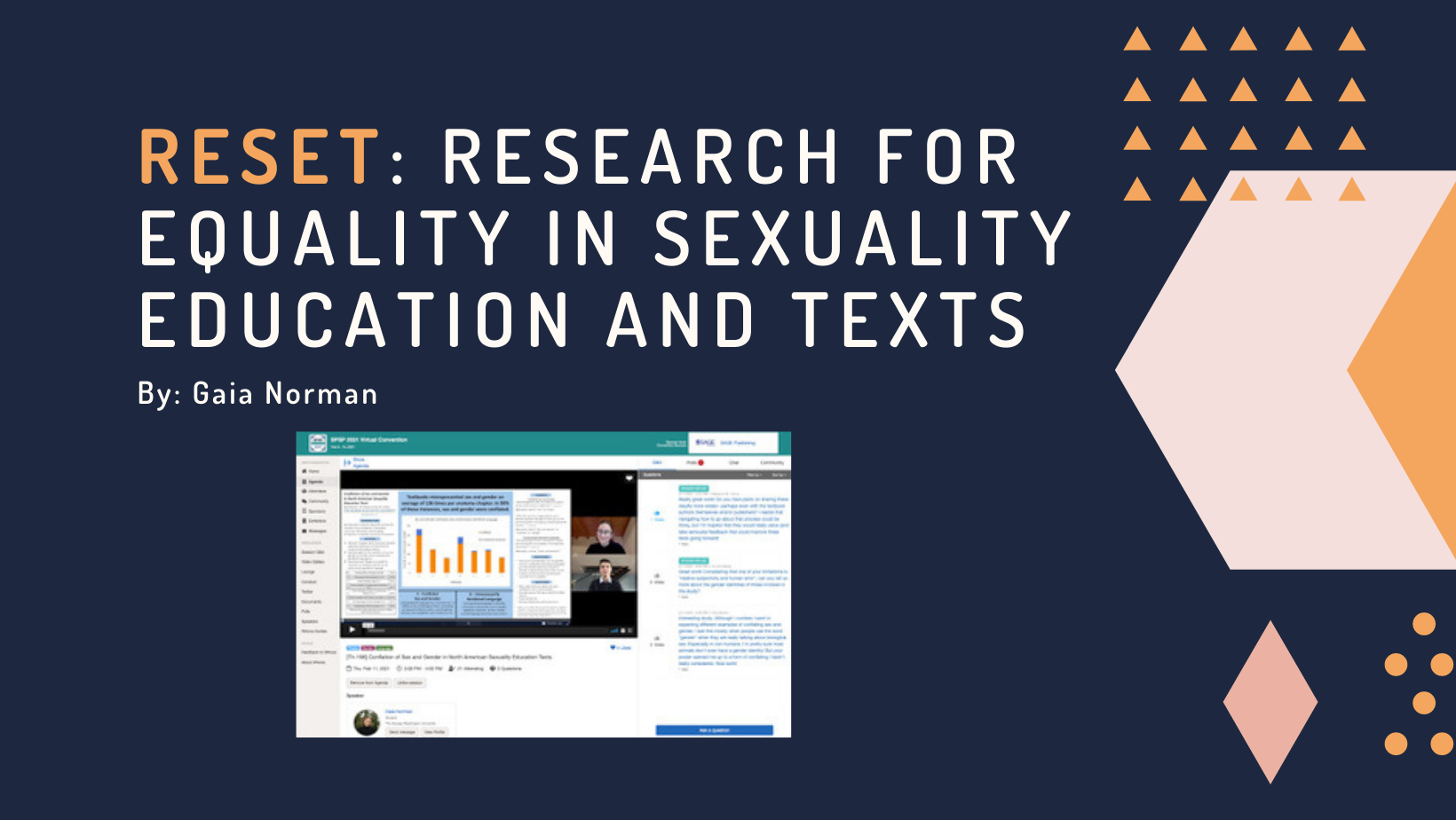During my time in the Women's Leadership Program (WLP), with support from Dr. Carly Jordan--director of the Science, Health, and Medicine cohort--I cultivated my passion for bridging gaps in healthcare equality. After organizing a women's health night symposium to discuss discrimination faced by the LGBTQ+ community in healthcare, my interest in inclusive sex education was sparked. With Dr. Jordan's guidance, a group of like-minded WLP and Honors students formed RESET: Research for Equality in Sexuality Education and Texts, a team of researchers dedicated to a future of inclusive sex education.
Over the past year, I co-designed an original research project to explore the conflation of sex and gender in educational texts and gained experience collecting and analyzing quantitative and qualitative data. We found that textbooks misrepresented sex and gender an average of 136 times per anatomy chapter. In 90% of these instances, sex and gender were overtly conflated, presenting scientifically inaccurate information and excluding intersex, transgender, and gender-nonconforming people from important conversations about safe and healthy sex practices. Recently, thanks to funding from the Humphries Leadership Award, I presented my findings to a graduate research conference of 4,500 attendees at the Society for Personality and Social Psychology's 2021 Virtual Convention. The experience was both rewarding and educational--the chance to promote the importance of our work to an audience of professional psychologists was immensely gratifying and gave me experience in scientific communication.
Leading up to the conference, my co-author Timothy Steves and I finalized data collection, created a visual representation of our findings, and practiced for our upcoming presentation. Navigating a virtual conference forum required flexibility on our behalf as the format changed last minute, requiring us to submit a pre-recorded discussion. Finally, on February 11th, we led discussions via Q&A chat boxes for a live, hour-long "poster session" (see picture to see some of the questions we were asked!) We were very excited to engage others in conversations about our methods and the significance of inclusive sex education for the health outcomes of sex and gender minorities. We hope that we helped raise awareness about the pervasiveness of conflation in educational materials and look forward to the next step in working toward a future of more accurate and representative sex-ed!


